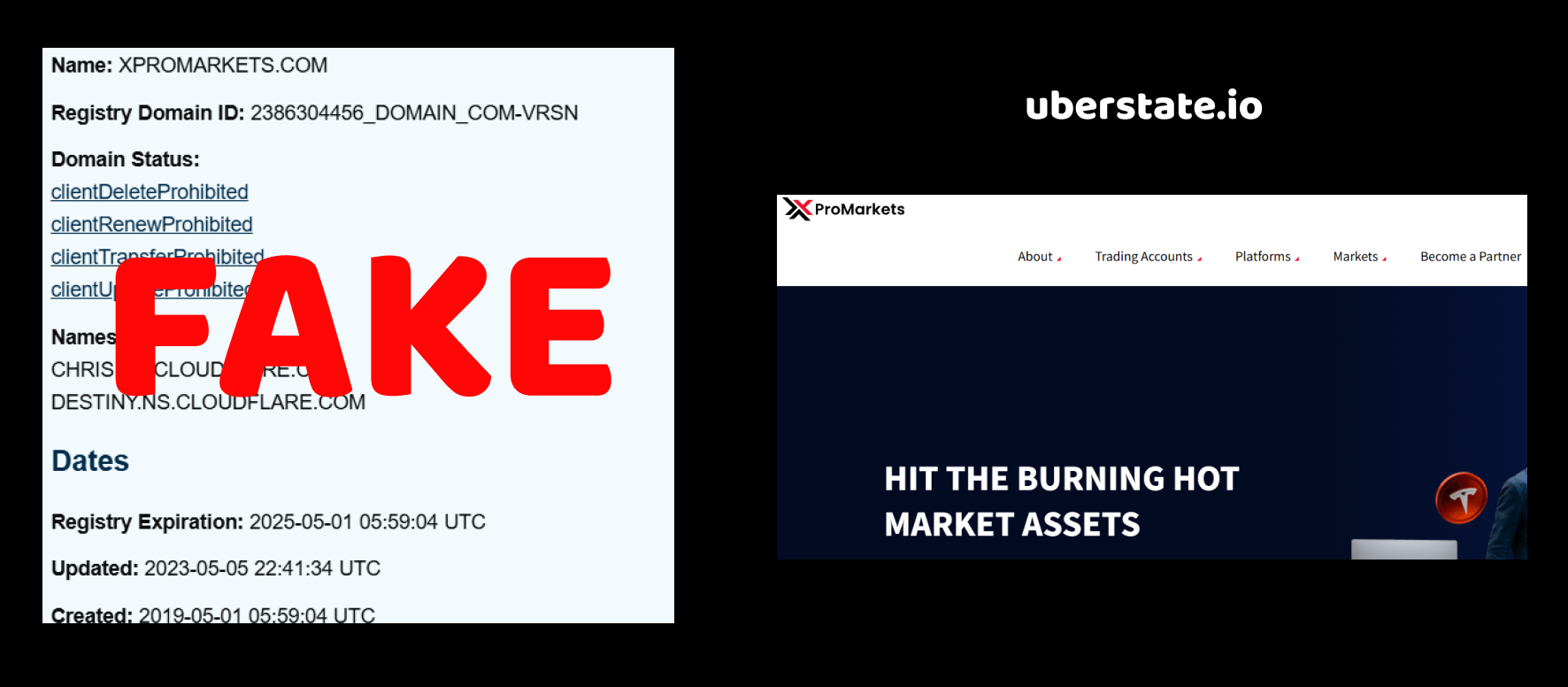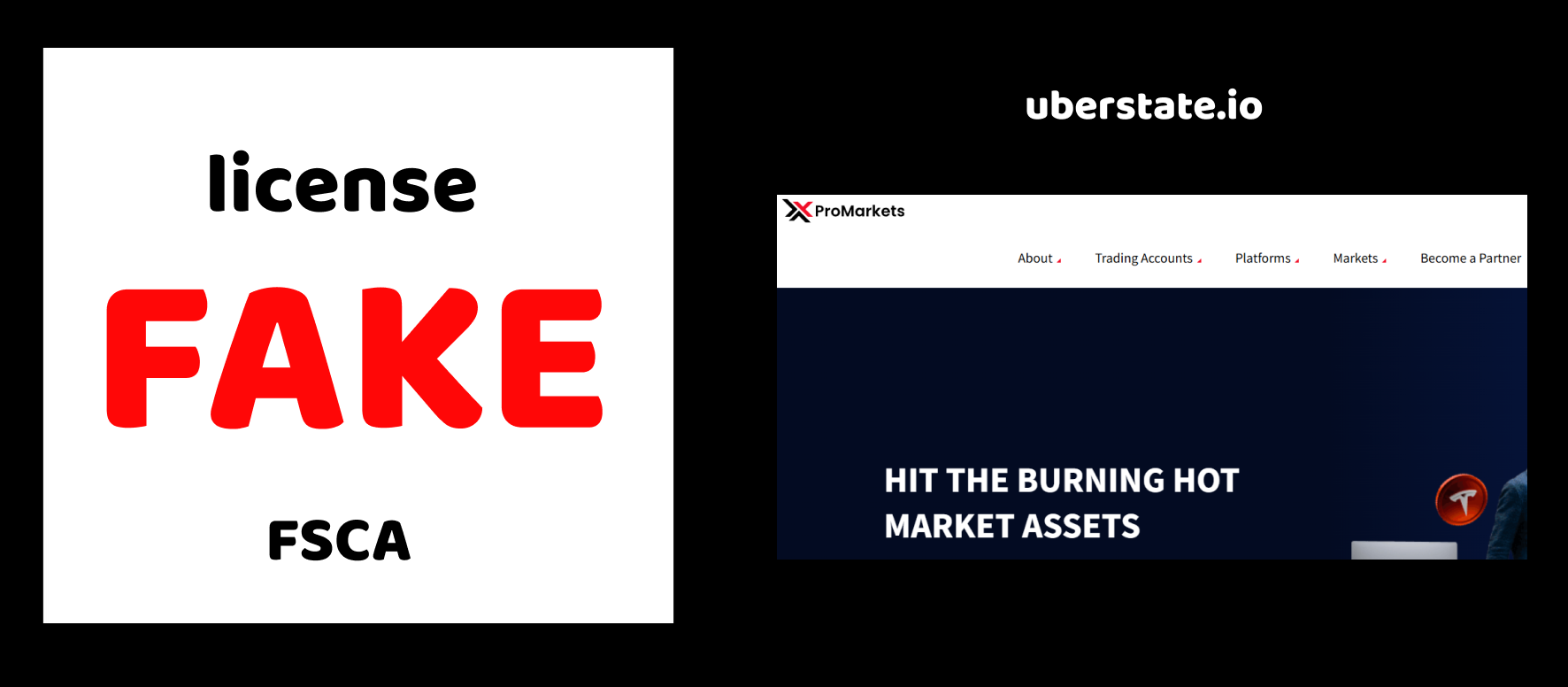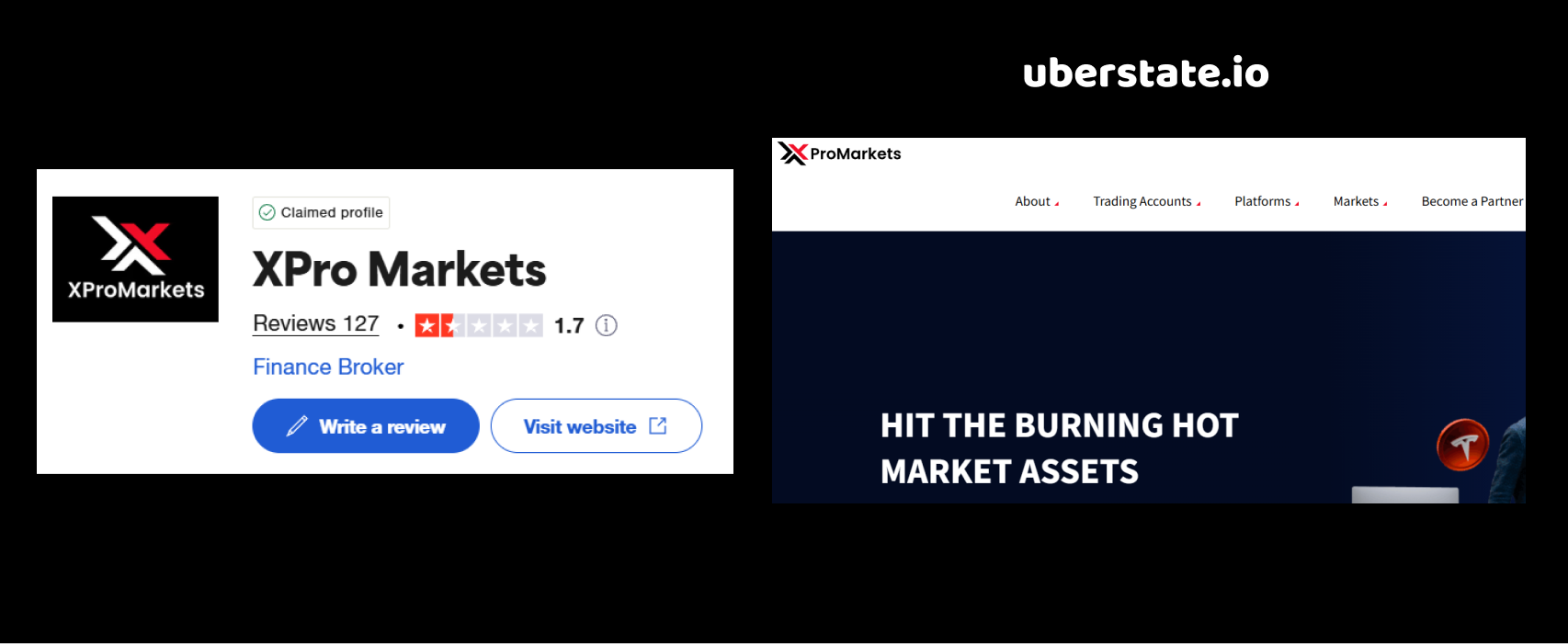Pro Markets review: is this broker as professional as it claims to be?

At first glance, Pro Markets tries hard to look like a serious player in the forex game. Slick design, bold claims about experience, and the classic buzzwords — “regulated,” “secure,” “trusted by thousands.” It’s everything a beginner trader might want to see.
But when we started peeling back the layers, the picture changed fast.
From the questionable domain history to a regulation claim that doesn’t hold up, Pro Markets starts looking less like a legit broker — and more like a well-disguised trap. And that’s exactly what shady platforms do: they create just enough of a professional image to lure in new users, while keeping everything beneath the surface messy, untraceable, and dangerous.
So what’s really going on here? Is Pro Markets just another forex platform — or is it a cleverly packaged scam?
Let’s break it down.
General Information – Pro Markets
| Parameter | Details |
| Account Types | Standard, Gold, VIP |
| Leverage | Up to 1:400 |
| Minimum Deposit | Not clearly specified |
| Trading Platform | Web-based (custom platform) |
| Customer Support | Email, contact form only |
| Phone Number | Not provided |
| Office Address | Not listed anywhere |
| Claimed Regulation | FSCA (South Africa) |
| Verified Regulation | Not confirmed |
And here’s the real issue: they offer high leverage, vague account terms, and no direct contact information — not even a phone number or a physical address. Why would a legitimate broker hide so much?
When a company keeps you at arm’s length and avoids any traceable presence, that’s usually not a coincidence — it’s a strategy.
Pro Markets review: the suspicious website creation date
When we started digging into Pro Markets, one of the first red flags appeared almost immediately — a mismatch between the company’s claimed founding date and the actual domain registration.
They proudly state they’ve been operating since 2021. Sounds solid, right? A few years in the game could imply experience or at least some traceable history. But once we ran a check on the domain, things didn’t quite add up. The domain was actually registered in May 2023.
Now let’s pause and think — how exactly does an online broker operate for two full years without a website? Were they executing trades by fax? Sending market signals via carrier pigeons?
Of course not. A legitimate broker would secure a domain and launch their platform from day one. Especially if they’re supposedly offering online trading services. This kind of gap raises serious questions. Because really, why would a trustworthy firm lie about something as basic as when they started?
That’s the thing — scammers often backdate their founding year to fake credibility. But when the domain was purchased two years after the claimed launch, it’s hard not to call that bluff.

Pro Markets review: FSCA license claim — a convenient illusion?
So, Pro Markets claims to be regulated by FSCA — the Financial Sector Conduct Authority of South Africa. At first glance, that sounds decent. FSCA is a real regulator, not some made-up offshore entity. But as we started digging, the whole story started to unravel.
First off, there’s no verifiable proof that Pro Markets is actually listed in FSCA’s public database. We searched using the license number they provide — nothing. Tried by company name — still nothing. That’s already suspicious. If you’re truly regulated, why not show up in the official records?
But the red flags don’t stop there. Think about this — if Pro Markets is supposedly catering to international clients (especially from Europe), why go all the way to South Africa for regulation? Why not get licensed by something more credible in the forex world like the FCA (UK) or CySEC (Cyprus)?
Here’s the kicker: FSCA doesn’t hand out licenses to firms operating internationally unless they have a physical presence in South Africa. Does Pro Markets have an actual office there? Any legal entity registered in the country? No mention of it anywhere. No address, no photos, no documentation — just the claim.
So we’re left with a likely scenario: either the license is fake, or they’re misusing the name of a legitimate authority to trick users. And sadly, it works — especially on beginners who see the word “regulated” and automatically assume everything’s safe.

Pro Markets review: Trustpilot exposes the ugly truth
When we checked Pro Markets on Trustpilot, things got real — fast. Their overall rating is a miserable 1.7. Let that sink in. Even among shady brokers, that’s rock bottom. No legitimate financial service provider can survive with feedback this bad.
Out of 127 total reviews, at least 47 are outright negative. And these aren’t just vague complaints. People talk about frozen withdrawals, aggressive sales calls, and losing their entire deposits. The crazy part? Most of these horror stories sound eerily similar. Different names, same plot. It almost feels like a script — except this one isn’t staged, it’s based on people getting scammed.
Now, sure, you’ll find a few positive reviews sprinkled in. But guess what? They’re just as suspicious — short, vague, and all written in the same tone. You know the type: “Great service, very helpful staff.” No specifics. No actual trading experience. Just fluff. It’s the kind of fake praise scammers paste in to balance the flood of negative feedback.
So let’s ask the obvious: why would a trustworthy broker need fake reviews? Why would they have such an overwhelming amount of legitimate complaints?
Because this isn’t a misunderstanding. It’s a pattern.

Final verdict: Pro Markets is playing a dangerous game — and it’s the clients who lose
After digging through every layer of Pro Markets, the conclusion is hard to ignore. This isn’t just a broker with a few rough edges. It’s a setup that raises red flags at every turn.
They claim to have been around since 2021 — yet their website only popped up in mid-2023. They flaunt an FSCA license — but there’s no record of them in the regulator’s database. And their Trustpilot page? A disaster zone, filled with complaints, horror stories, and a sprinkle of obviously fake praise to keep up appearances.
So we have to ask: why would a truly professional, trustworthy broker lie about their launch date, fake their regulatory status, and try to cover up negative feedback with generic praise? The answer is simple — because they’re not here to help you trade. They’re here to take your money.
And like every well-crafted scam, Pro Markets isn’t sloppy. It’s calculated. It’s built to convince, to lure in people who won’t question too much until it’s too late. But the cracks are there — and once you see them, it’s impossible to ignore.
If you’re looking for a real trading partner, Pro Markets is not it. Don’t fall for the illusion.






